The first novel in Mahfouz’s historical trilogy, and also his first to be widely circulated. It revolves around King Khufu, during the construction of the Great Pyramid, who hears a prophecy from the magician Didi that he will be the last king of the family to rule Egypt, and that a child born in a priest’s village will rule after him. Khufu leads a campaign to eliminate the child. However, news reaches the priest, who smuggles his son and his wife to a remote location. The pharaoh arrives at the priest’s house and kills another child born on the same day.
Fate’s Absurdity
د.ا6.00
A philosophical novel that explores man’s struggle with fate through a symbolic story set in the time of the pharaohs.
Available on backorder
| Categories: | Literature, Novels, World literature, Prose literature, Philosophy |
|---|---|
| Tags: | literature, Novels, philosophy, World Literature |
| Author | |
|---|---|
| Year | |
| Publisher | Dar Al-Shorouk |
You may also like…
-
The Final Decision
د.ا6.00A philosophical novel that addresses issues of life, death, and fateful decisions, through a personal experience in which questions of existence and destiny intertwine.
-
A House of Infamous
د.ا6.00A social novel that sheds light on the social conditions and psychological challenges facing members of society within a framework of suspense and drama.
-
The Black Cat Tavern
د.ا6.00A collection of short stories that sheds light on Egyptian reality through marginal characters, revealing the inner struggles of man in the face of life and society.
-
God’s World
د.ا6.00A philosophical collection of short stories that explores human questions about fate, faith, and life through intensely symbolic scenes.
Related products
-
For Bread Alone
د.ا4.97For Bread Alone , al-Khubz al-Hafi) is a controversial autobiographical work by Mohammed Choukri. It was written in Arabic in 1972 and translated into English by Paul Bowles in 1973.[1] In 1980, it was published in French as Le Pain Nu in a translation by Tahar Ben Jelloun. The novel has been translated into 39 foreign languages[2] and adapted into a French graphic novel by Abdelaziz Mouride [fr].[3]
د.ا7.10 -
Prisoner of Heaven
د.ا7.10After the shadow of the wind and the angel game, I ended my strange meeting with Carlos Zafon in the third part of the Tomb of Forgotten Books series in this piece that I read while trying to understand what was going on in his head, which wanted the prisoner of heaven to tell us the dark nights of Barcelona from the window of its prisons, that prison that embraced Martin for a long time and through which he excelled in writing The Game of the Angel, which was the hero of that novel David Martin and Isabella, and we got to know their end, which was not confirmed by the lines. The writer also explains that what we can consider a coincidence with us may be wisely studied and what we interact with with all honesty may be fake and obsolete as the first boot, the past is just images stuck in our heads and just a glance of it returns to expose itself, and opens new cracks in our hearts, pushing you to search and explore what the truth is and to what extent it can comfort you or in any proportion that may make you a wreckage between the legs, yet the search for it is The way of salvation,
د.ا8.52 -
Palestinian resistance literature under occupation
د.ا3.55Ghassan Kanafani is a Palestinian novelist, storyteller, and journalist, and is considered one of the most famous Arab writers and journalists in the twentieth century. His literary works, including novels and short stories, were deeply rooted in Arab and Palestinian culture
د.ا4.97 -
Stolen shirt
د.ا2.13Ghassan Kanafani is a Palestinian novelist, storyteller, and journalist, and is considered one of the most famous Arab writers and journalists in the twentieth century. His literary works, including novels and short stories, were deeply rooted in Arab and Palestinian culture
د.ا3.55 -
Umm Saad
د.ا2.13Ghassan Kanafani is a Palestinian novelist, storyteller, and journalist, and is considered one of the most famous Arab writers and journalists in the twentieth century. His literary works, including novels and short stories, were deeply rooted in Arab and Palestinian culture
د.ا3.55 -
The Alchemist
د.ا4.97The Alchemist (Portuguese: O Alquimista) is a novel by Brazilian author Paulo Coelho which was first published in 1988. Originally written in Portuguese, it became a widely translated international bestseller. The story follows the shepherd boy Santiago in his journey across North Africa to the Egyptian pyramids after he dreams of finding treasure there.
د.ا7.10 -
The Forty Rules of Love
د.ا10.65is a novel written by the Turkish author Elif Shafak,[1][2][3] Her interest in writing this book was influenced by the degree she received in Gender and Women’s Studies.[4] The book was published in March 2009.[5] It is about the Persian mystic poet Maulana Jalal-Ud-Din, known as Rumi and his companion Shams Tabrizi.[6][7] This book explains how Shams transformed a scholar into a Sufi (mystic) through love.[8] More than 750,000 copies of this book were sold in Turkey and France
د.ا12.78 -
Land of sad oranges
د.ا2.13Ghassan Kanafani is a Palestinian novelist, storyteller, and journalist, and is considered one of the most famous Arab writers and journalists in the twentieth century. His literary works, including novels and short stories, were deeply rooted in Arab and Palestinian culture
د.ا3.55

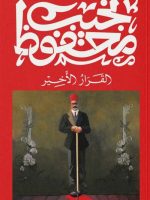
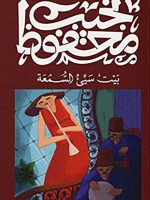
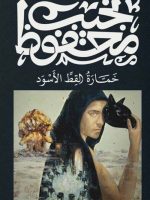
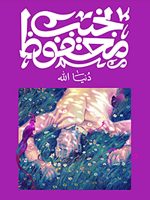
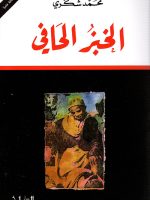
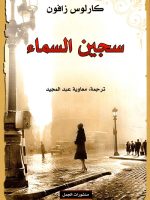
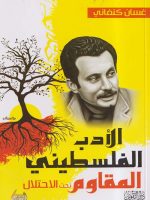
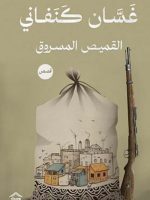

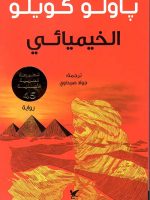
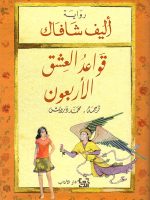
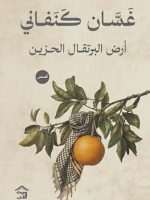
Be the first to review “Fate’s Absurdity”